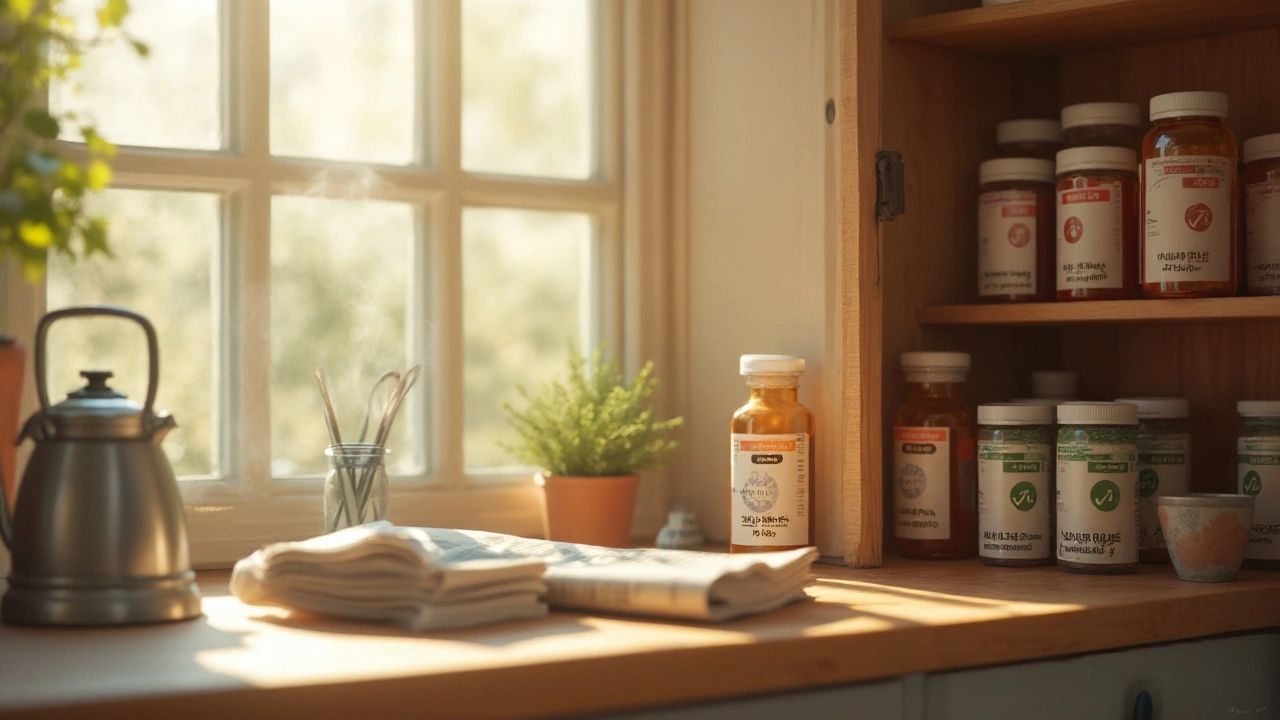Drug Shelf Life: What It Means and How to Keep Meds Effective
Ever stare at a bottle and wonder if that pill is still good? The "shelf life" of a drug tells you how long it stays safe and works as intended. It’s not just a random date; it’s based on testing that checks potency, safety, and how the medicine holds up under normal conditions.
Manufacturers set expiration dates by looking at factors like chemical breakdown, moisture, temperature, and light exposure. After that date, the drug might lose strength, change its composition, or even become unsafe. That’s why pharmacies and regulators treat the date seriously.
Key Factors That Influence Shelf Life
Temperature is the biggest player. Storing a cool‑room drug in a hot car can speed up degradation. Light is another enemy; many tablets and liquids turn brown or lose potency when left in bright spots. Moisture does the same thing, especially for powders that can clump or grow mold.
Packaging matters too. Blister packs, aluminum foil, and airtight bottles protect meds from air and humidity. Once you break that seal, the clock starts ticking faster. That’s why you’ll see tighter dates on opened bottles compared to unopened ones.
Practical Tips to Extend Your Meds’ Shelf Life
First, keep everything in a cool, dry place. A pantry away from the stove works better than a bathroom cabinet. If a medicine says "store in refrigerator," follow that rule—don’t forget to keep it in its original container.
Second, avoid direct sunlight. Even a windowsill can be too bright for sensitive meds. Use opaque bags or keep them in a closed drawer.
Third, seal containers tightly after each use. If a bottle has a child‑proof cap, make sure it clicks back into place. For pills in blister packs, keep the strip intact until you’re ready to take them.
Finally, check expiration dates regularly. When you do a quarterly clean‑out, pull out anything past its date and decide what to do next.
If you find expired medication, don’t just toss it in the trash. Many pharmacies offer take‑back programs, or you can follow local guidelines for safe disposal. Throwing pills down the drain can harm the environment.
In a pinch, some drugs remain safe a bit longer, but it’s a risk. For critical meds like heart or insulin, never gamble – replace them promptly.
Understanding drug shelf life helps you get the most out of your prescriptions and stay safe. Stick to proper storage, watch the dates, and dispose of old meds responsibly. Your health and the planet will thank you.






